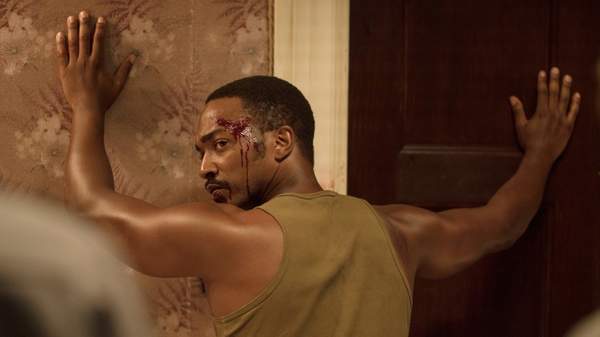Overview
Terms like #BlackLivesMatter and alt-right didn't exist in 1967. As such, they're not mentioned in Detroit, a film based on the infamous race riots that gripped the titular town 50 years ago. Instead, we hear other telling words and phrases. Words like "you people". Words like "them". When a racist cop compares the city to 'Nam, when offensive slurs flow freely, and when scared black men openly pray for their lives in front of white police officers, there's no mistaking the climate of hatred and fear they're all inhabiting — or the parallels with the United States today.
In a film of talk as much as action, these moments shudder with significance. Often, they make the audience shudder as well. Director Kathryn Bigelow, who remains the only woman to win an Oscar for direction, wants the violence, the slurs and the sense of anxiety to stand out. At the same time, she demonstrates just how commonplace it all was — and still is. As they did with The Hurt Locker and Zero Dark Thirty, Bigelow and writer Mark Boal serve up an eye opening account of how America operates. Only this time, as they delve into racial, societal and institutionalised conflicts, they're working on home soil.
Accordingly, Detroit pieces together a picture of a city and a nation seething with disharmony, weaving seemingly disparate stories together to recreate one specific incident. On the night of July 25, 1967, cops respond to reports of a sniper at the Algiers Motel, but can't locate the culprit or a weapon once they arrive. Already full of bluster from an earlier altercation, Officer Krauss (Will Poulter) and his colleagues (Jack Reynor and Ben O'Toole) aren't prepared to leave empty-handed. So the trio interrogate and intimidate a group of black men, plus two young white women, determined to put somebody in handcuffs.
Among their detainees: The Dramatics singer Larry (Algee Smith) and his pal Fred (Jacob Latimore), who are staying the night en route home from their cancelled gig, and happen to cross paths with the attractive Julie Ann (Hannah Murray) and Karen (Kaitlyn Never). They're in the vicinity of the shots simply because they've followed the girls into their friend Carl's (Jason Mitchell) room. He's hanging out with a few mates, while returned soldier Greene (Anthony Mackie) is also down the hall. Arriving with the national guard, part-time security guard Melvin Dismukes (John Boyega) tries to assist in the aftermath.
Detroit lets viewers get to know these characters — and to know them well. You can tell a lot about a person by the way they react when times get tough, and everyone here is swimming in pressure. After backstories are laid out in the film's first quarter, the movie spends its terse, tense mid-section in the hotel, watching the various figures face off. The camerawork is jumpy, intimate and urgent, as are the performances. Poulter is unnerving in his venomous conviction, while Smith is heartbreaking as the aspiring talent seeing his dreams fade away. Boyega, meanwhile, is a ball of internalised turmoil as the man caught in the middle.
With the aforementioned war films as well as Point Break and Strange Days on her resume, Bigelow has consistently proven herself to be one of the best action directors working today, and Detroit only solidifies that status. Just as the film initially bounces around the riots to establish Detroit's volatile intensity, it also gets up close and personal with its main players, crafting a brutal snapshot not only of the events in question, but the city at the time and America as a whole. In the process, it serves as both an immersive picture of history and a horrific cautionary tale. Archival footage is used to amplify the grim mood, but it isn't really needed. Detroit would be a stunning piece of cinema either way.
Features
Information
When
Thursday, November 9, 2017 - Thursday, December 21, 2017
Thursday, November 9 - Thursday, December 21, 2017
Where
Various cinemas in SydneyPrice
$15 - 25-
Event Type
